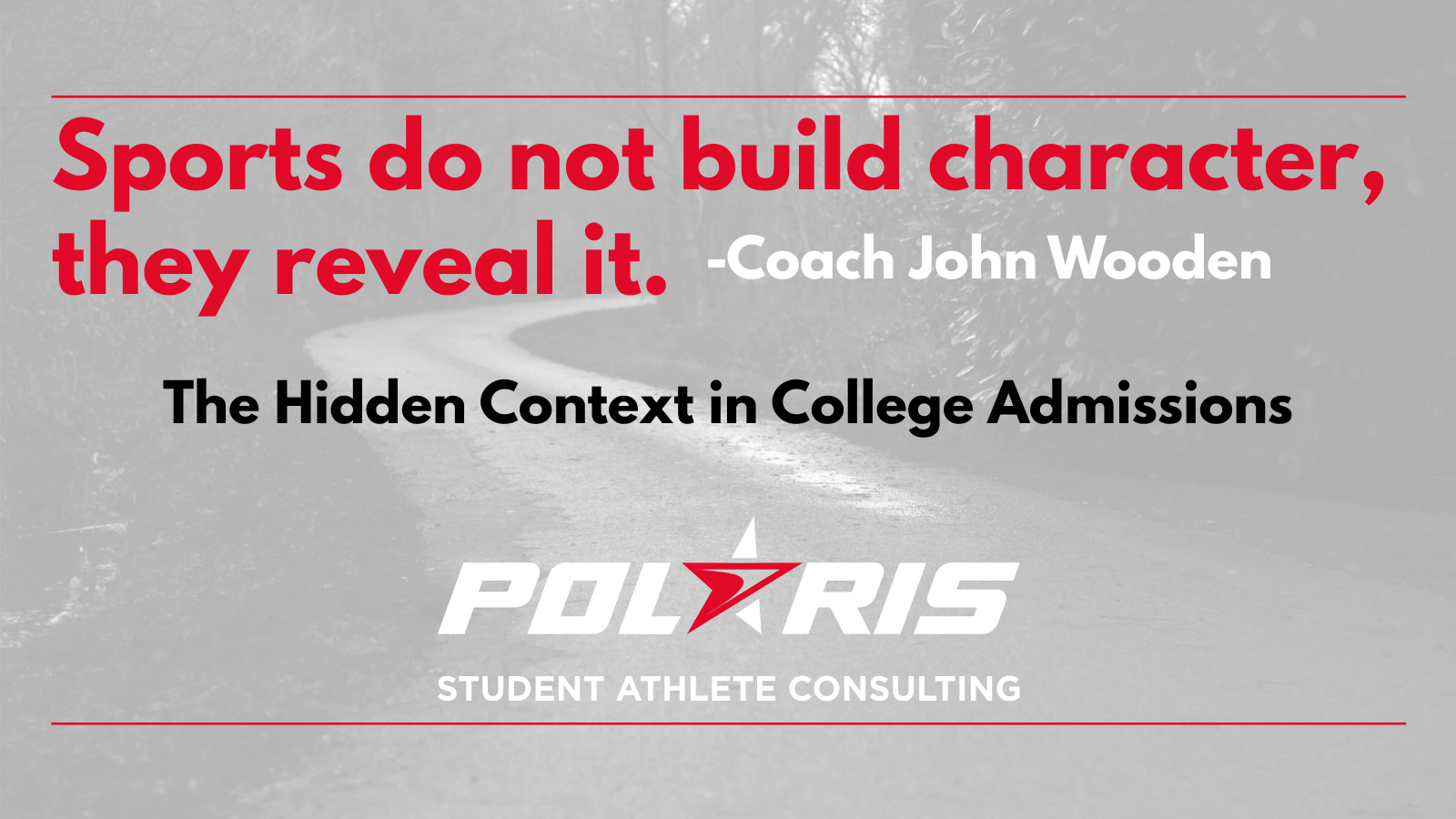The Hidden Context in College Admissions
When most people think about what makes a strong college application, they imagine transcripts, test scores, leadership roles, and for student athletes, athletic performance metrics like rankings, stats, and recruiting visibility.
At POLARIS, we believe there’s more to consider.
One of the most overlooked parts of the college journey is the set of responsibilities and challenges student athletes manage outside of the classroom and off the field. These experiences often speak volumes about their character, resilience, and overall readiness for college, sometimes even more than traditional accomplishments.
The Responsibilities Colleges Don’t Always See
Many student athletes balance far more than academics and athletics. Some provide daily care for younger siblings, support elderly relatives, work to help cover household expenses, or navigate family health issues and personal hardships. These responsibilities are rarely listed on a resume, but they shape who a student is and how they show up in every aspect of life.
Unfortunately, student athletes often don't report these experiences. Sometimes they don’t realize they’re relevant. Other times, these responsibilities feel so routine they’re not even worth mentioning. But when it comes to college admissions, these experiences provide meaningful insight and deserve to be shared.
Why It Matters
Colleges and universities are increasingly encouraging applicants to share significant family responsibilities and personal circumstances that may influence academic performance, activity involvement, or availability outside of school.
These life experiences often develop the same qualities that colleges and their athletic coaches deeply value:
Resilience
Compassion
Time management
Work ethic
Empathy
Consider a student athlete who manages school and training while working 20 hours a week to support their family or one who is watching their younger siblings while their parent/guardian works multiple jobs. Those students are demonstrating leadership, maturity, and perseverance, even if they didn’t have time to attend extra summer programs or start a club. That context matters.
Where to Share in the Common App
There are several ways student athletes can share this part of their story:
Activities Section: List caregiving or part-time work as a meaningful responsibility that reflects time and commitment.
Additional Information Section: Use this space to provide context about personal or family challenges and their impact on school and activities.
Personal Statement: If the experience has shaped your identity or values, it may serve as a powerful college essay topic.
Counselor Recommendation: A counselor or trusted adult can provide additional insight into your circumstances and strengths.
A Message Regarding NIL Opportunities
If you’ve been balancing more than your peers—emotionally, financially, or physically—it’s not something to hide. It’s part of your story. It doesn’t make you less competitive. It makes you more human.
When it comes to NIL opportunities brands are seeking connection.
This is the human element that sets you apart from the masses seeking a brand partnership. Share your story. Good things will happen.
Our Approach is Personal
It may sound cliché, but it’s true. When I was in 4th grade my father was diagnosed with Stage IV leukemia. His 9 year battle included a bone marrow transplant and while cycling in and out of remission, I navigated my high school years as the oldest of three children in a single income family when he was able to work.
While there were likely resources available, I wasn’t aware of them at the time. Instead, I mowed lawns, worked at our local hardware store, and took on odd jobs to save money so I could attend basketball and football camps each summer. When it came time to take the SAT, I dipped into my camp funds to register for the test.
I never shared my story, asked for help, or thought to seek out resources. Today, I understand the power of connection and how the right support and people in place can remove barriers, unlock opportunities, and become a launch pad for student athletes facing adversity.
These memories fuel my passion for guiding student athletes through their journey with empathy. Our approach is personal because we’ve lived it. At POLARIS, we help student athletes reflect on their full experience, beyond transcripts and game stats. We believe your journey deserves to be seen and understood in full. College admissions is not just about what you’ve accomplished, but also what you’ve overcome and how you’ve grown.
Need help telling your full story in the college process?
Connect with POLARIS Student Athlete Consulting. We’ll help you approach it with clarity, confidence, and purpose.

